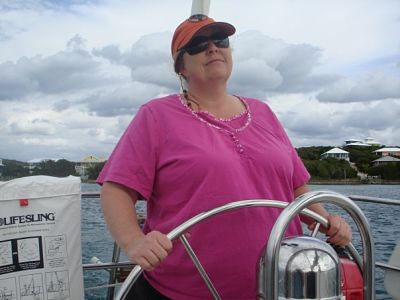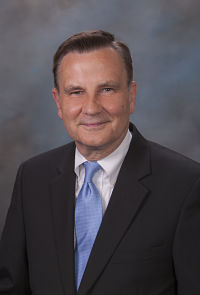
Dosher Wound Care Center in demand
Penny Smith, Wilmington, is one thankful patient. She says the Wound Care Center at Dosher came to her rescue, healing a serious wound she thought would never go away.
"It's incredible what they are doing there. They are extremely caring and they listen. They want to do everything they can to solve the problem," Penny says.
Penny had a golf ball-sized hole in her abdomen growing with infection following an emergency abdominal-blockage surgery elsewhere that ruptured 18 days later. She was sent to the Wound Care Center at Dosher Memorial Hospital where state-of-the-art technology and wound care specialists are able to treat complicated, chronic wounds like hers.
"I'm a nervous and apprehensive person, but they made me feel relaxed and assured. They know what they are doing," Penny says.
Her treating physician was Robert Zukoski, MD.
"They are so good, I would recommend them 10 days a week," Penny says.
Chronic wounds-mostly caused by diabetes-are on the rise, with more than 6.5 million people in the U.S. now affected by chronic wounds, according to the National Center for Biotechnology Information. The Dosher Wound Care Center is the only center of its kind within 50 miles of Wilmington.
"Dosher realized this is a specialty to bring to the community that would be a great benefit. It was a much stronger demand than we thought," John Stone, CHRN, Wound Care Center clinical director, says.
The demand was so high, the Wound Care Center started seeing patients before it even officially opened in January 2015.
In its first year, the center had 1,774 wound care visits-50 percent more than expected-and a successful 95 percent heal rate.
A high-tech draw for the Wound Care Center is the hyperbaric (HBO) chambers.
Wound care visits the first year included 821 hyperbaric chamber treatments or "dives."
The treatments use concentrated oxygen levels to help heal chronic, non-healing wounds and have the ability to save limbs or treat difficult bone infections.
"In the HBO chambers, patients can absorb 20 times the amount of oxygen than they can receive through a traditional oxygen mask. This helps their wounds heal faster," Stone says.
Wounds from radiation treatments or crush injuries, skin grafts, soft tissue infections and diabetes-related sores all respond well to the hyperbaric chamber treatments. Dosher's Wound Care Center is the only one in southeastern North Carolina with two hyperbaric chambers and three board-certified hyperbaric specialists on staff.
Only 700 hyperbaric nurses exist in the world.
"With smaller hospitals, they're not going to do brain surgery, but they can take a few clinical services and do them very well. Wound care at Dosher is one of those services," Stone says.
The Center follows strict clinical wound care guidelines and is operated by a specialized staff of two physicians and a nurse practitioner. The center's two RNs and safety director are board certified in hyperbarics. Wound Care Center patients receive more concentrated care. On average, an hour is spent with every patient each visit.
"Ninety percent what we do is just good wound care," said Stone. "We follow guidelines that are all wound care based, proven that they work. Doing that with every patient every time, you don't miss the little things," he says.
Dosher provides related services, including infectious-disease management, physical therapy, occupational therapy, laboratory evaluation, nutritional management, pain management, diabetic education and radiology testing.

Robert Zukoski, MD
Other wound care providers on staff at Dosher are:
Brad Hilaman, MD, Medical Director
Sally Delmastro, ANP-BC
For more information, call 910-454- 1192 or visit Dosher.org/Wound.













